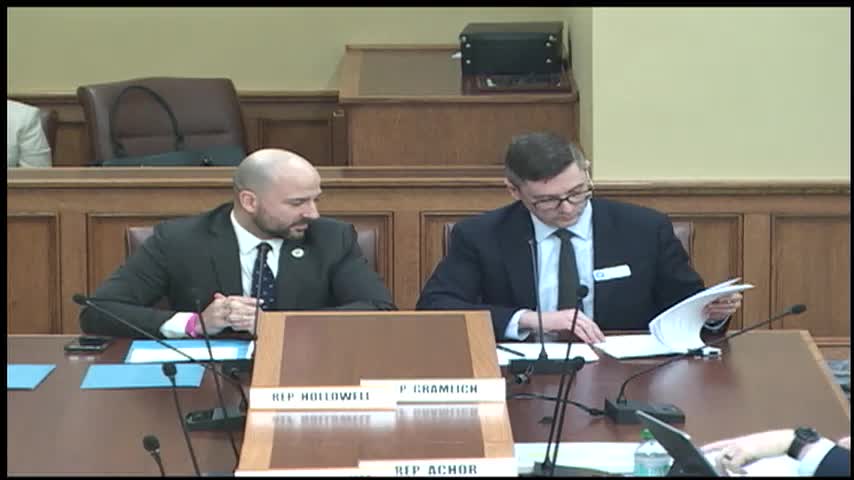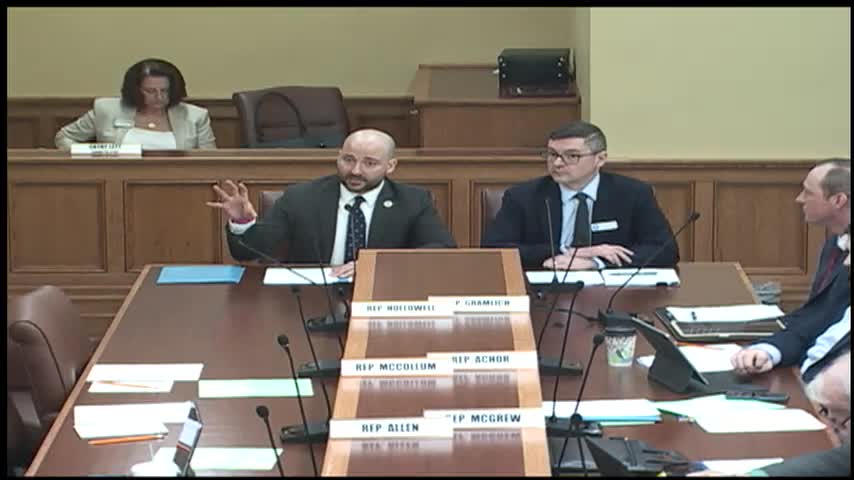Article not found
This article is no longer available. But don't worry—we've gathered other articles that discuss the same topic.

Committee approves bills on retiree re‑enrollment, mortgage practices, lending standards, property management and consumer sales

Committee hears bill to bar third‑party watermarking of circuit‑clerk records; bill held for later vote

